Ex-President Khatami Calls For Acceptance of Society's Views On Hijab
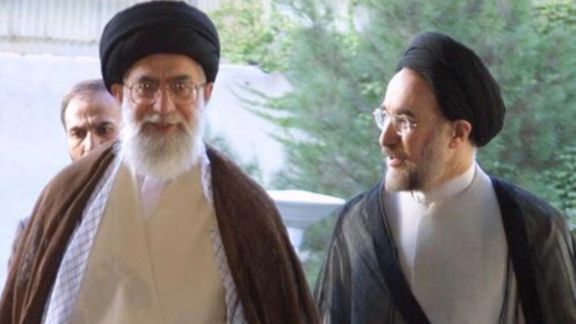
Former Iranian President Mohammad Khatami has called on the government to recognize that a substantial part of society opposes the mandatory hijab.

Former Iranian President Mohammad Khatami has called on the government to recognize that a substantial part of society opposes the mandatory hijab.
He made these statements in an introduction he wrote for a research paper on the topic of hijab.
In recent months, there has been a notable increase in police and judicial actions against women and girls who choose not to wear the mandatory hijab. The Hijab and Chastity Bill, which was approved by the Judicial and Legal Commission of the Parliament, to confiscate up to 10 percent of celebrities' assets and incomes if they violate hijab rule has been met with criticism as it targets women who refuse to comply with the mandatory hijab.
Addressing the issue, Mohammad Khatami wrote that “relying on coercion has not proven to be successful and has instead led to widespread protests”. He highlighted the need “to understand the diverse and evolving nature of society and seek realistic solutions to the challenges arising from this transformation.”
The opposition to the mandatory hijab has gathered pace, particularly in recent months after the death of Mahsa Amini while in the custody of the morality police, and the ensuing Women, Life, Freedom protests. Women continue to defy coercive measures imposed by the Islamic Republic and appear in public places without the mandatory hijab.
Recently, reports have surfaced regarding the regime's actions against institutions and online companies due to the publication of images of their female employees without the mandatory hijab.
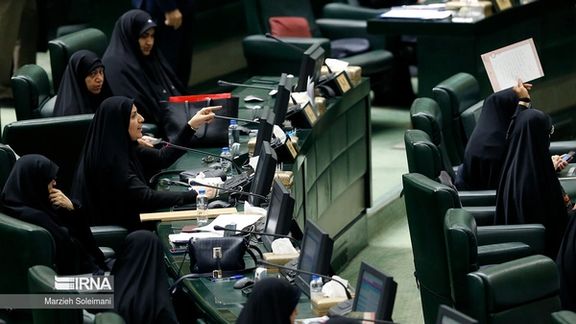
Legal experts say Iran’s new hijab bill violates not only civil rights but also the Constitution and requires vast resources beyond the government’s means.
Speaking to Tejarat News, a website in Tehran, lawyer Sara Bagheri said the proposed legislation is against individuals’ rights including their right to security and will hurt individuals’ reputation and dignity on account of their chosen style of clothing.
Referring to article 51 of the proposed law which prescribes heavy cash fines for unveiling in public, Bagheri said what is considered as crime, and the corresponding punishment in this article and others, are very disproportionate. “Also, the bill does not make it clear what will happen if the person [found guilty] refuses to pay the fine,” she added.
Shima Ghousheh, a law expert, wrote in a commentary published by the reformist Etemad newspaper on Saturday, "The country’s whole budget should be used to build prisons for women because many Iranians will not be able to pay these [heavy] fines and should be sent to prison." She pointed out that the punishments for unveiling or "improper" hijab are much heavier than those prescribed by law for financial crimes, including embezzlement and drug-related offenses.
The hijab bill bans taking photos or videos of police while enforcing hijab but two of its articles, 36 and 37, allow law enforcement officers as well as civilians, provided that they have been trained and certified by the police, to take photos of the person violating the hijab law and post it to a special police portal. They will also be authorized to report businesses that have failed to comply with the provisions of the new hijab law.

These two articles open the door to libel based on personal grudges against individuals, even when they have been compliant with the rules, and courts will have to deal not only with hijab infringement cases but also a vast number of legal cases resulting from personal grudges, experts say.
Since March, hardliners have attempted to end women's increasing defiance of compulsory hijab and reclaim lost ground through various instructions to government bodies, but their efforts seem to have hugely backfired as the number of women who refuse to abide by the current rules has noticeably increased.
In a commentary published by Etemad, well-known Iranian lawyer Kambiz Nowrouzi strongly criticized a recent directive by Gilan Medical Sciences University, an affiliate of the health ministry, that bans hospitals under its coverage from offering services to unveiled women and called it "an astounding and horrendous example of violation of the [existing] laws and ethics."
Law expert Omid Salimi-Bani told the conservative Khabar Online news website Saturday that the bill, if approved, will add thirty new types of crimes to the list of crimes in the Islamic Republic’s existing laws.
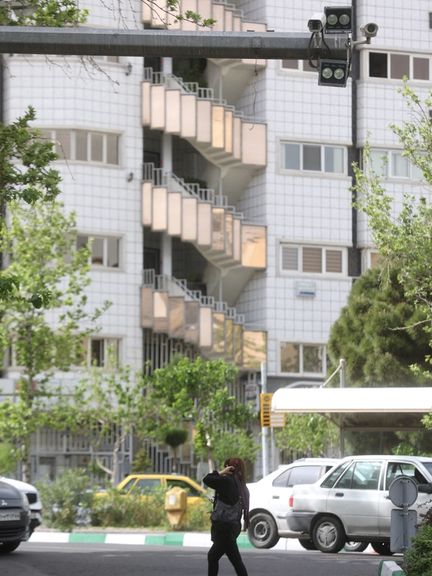
Some of the other “crimes” enumerated in the bill include “promoting unveiling” which may be considered as corruption on earth that bears a death penalty , “insulting the principle of hijab” which will be punishable by a cash fine of 1 billion rials ($2,000) for the first infringement, as well as designing, advertising or importing banned clothing, and refusal of businesses to submit their CCTV recordings to authorities for identification of unveiled women.
“Are these behaviors so abominable from the point of view of societal norms and people that they require punishment? It doesn’t seem that the majority of people think the same as those who have written the bill,” he said.
“State and government culture-building has proven to be a failure and the Iranian example is one of the best,” reformist Ham-Mihan newspaper wrote Sunday and suggested holding a referendum to find out what most Iranians think about the issue of hijab.
The regime and its Supreme Leader Ali Khamenei have always refused suggestions of referendum which Article 59 of the Constitution of the Islamic Republic, which was approved by a referendum after the Islamic Revolution of 1979, proposes in “extremely important economic, political, social, and cultural matters.”
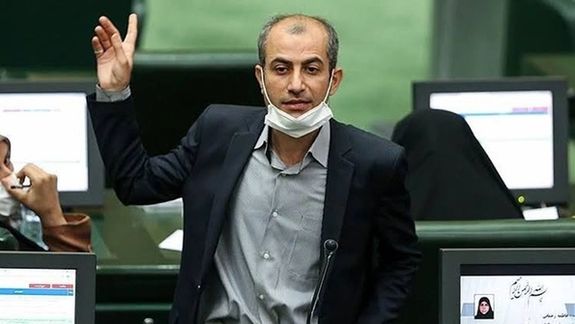
In stern cautionary statements, two Iranian members of parliament have raised concerns about the precarious state of Iran's economy.
Mojtaba Tavangar, representing Tehran in the parliament, stressed on Sunday that without a comprehensive and robust plan to address the nation's economic challenges, attempts to alleviate poverty through wealth distribution or subsidies would prove futile in the face of potential currency shocks.
"If we do not have a plan and simply want to reduce poverty by distributing wealth or distributing subsidies, then, with another foreign currency shock, all the work that we have done to reduce poverty will be undone," warned Tavangar.
As a member of the economic commission of parliament, Tavangar went on to criticize the government's apparent weaknesses in managing the economy. He pointed to alarming indicators such as continued inflation, the soaring cost of food, skyrocketing house rents, and the overall high cost of living as the key pressing issues plaguing the nation.
In agreement with Tavangar, Mohammad Vahidi, the representative of Bojnord in the parliament, also warned about the potential consequences of the current economic trajectory. Vahidi sternly cautioned that the country could be led to the brink of economic collapse if the current governance approach is not re-evaluated.
Official reports have lent weight to the parliamentarians' warnings, reflecting the severity of the economic situation in Iran. The Parliament Research Center recently published a report stating that 75% of the three lowest income deciles lack any support, confirming an increase in the number of poor individuals in the country.
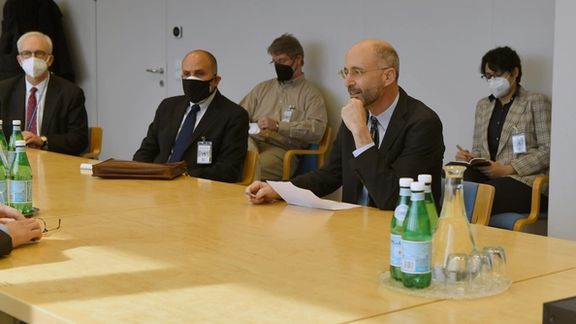
A conservative newspaper editor in Tehran says that Iranian hardliners exposed US envoy Robert Malley’s alleged secret contacts with Islamic Republic officials.
Masih Mohajeri, a cleric who is the editor of Jomhuriye Eslami (Islamic Republic) conservative newspaper in Iran told a local website that “merchants of sanctions” in Iran who always tried to sabotage relations with the West, exposed Malley, who has been suspended from the State Department and his security clearance is under investigation.
‘Merchants of sanctions’ in Iranian jargon are those in the power structure within the regime who reap profits from foreign sanctions, by using Iran’s isolation to set up their business monopolies in the country. Chief among them are allegedly senior officers of the Revolutionary Guard and their circle of hardliners, who currently control the parliament, the presidential administration, and the fearsome judiciary.
Although Mohajeri belongs to the first generation of Islamist revolutionaries who overthrew the monarchy in 1979, he is known as a relatively independent elder, who occasionally criticizes officials and extremists within the regime.
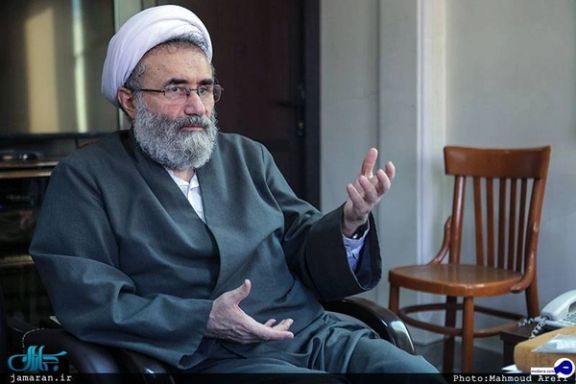
“Malley held negotiations with some Iranian individuals, in such a way that problems were reaching a point [of resolution], which perhaps even American officials were not fully aware. But domestic hardliners and merchants of sanctions exposed the information related to these talks, to sabotage them,” Mohajeri was quoted as saying. He did not claim to have any insider information for accusing the hardliners, but his full interview has not yet been published.
Mohajeri went on to accuse hardliners of a series of malign activities within Iran and interference in domestic politics.
Iran International first reported June 29 that Malley was suspended from his position as US envoy for Iran, his security clearance was suspended and he was under investigation related to his handling of classified documents. The Involvement of the Federal Bureau of Investigation was also reported, although until now no official details have been announced, except that Malley is on “unpaid leave.”
Biden administration officials Friday went to Capitol Hill to brief members of the House Foreign Affairs Committee, but they revealed nothing about why Malley was suspended and what is the investigation about. According to the committee chairman Rep, Michael McCaul (R-TX), officials claimed that due to the US Privacy Act they could divulge any information while the investigation is still ongoing.
To add to the mystery, Tehran Times an Iranian regime mouthpiece has extensively reported on Malley’s saga, appearing to have some insider information. The paper reported the exact date of Malley's suspension as April 21, when Malley was informed by the Diplomatic Security Department that due to his not having maintained classified documents, his security clearance was suspended. No one else had an exact date as to when Malley’s security clearance was suspended.
Benny Avni, a columnist at the New York Sun commented about the briefing, pointing out that “the briefers apparently shed no light on Mr. Malley’s mysterious removal from his post, the stripping of his security clearance, or the purging of his official Twitter account.”
He also quoted Jason Brodsky, the policy director at United Against a Nuclear Iran as saying that the State Department has a communication problem. “They can’t announce that the nuclear deal is dead. They can’t announce there is a deal. And they can’t provide anything on Malley. Their dodge, duck, and weave act is awkward.”
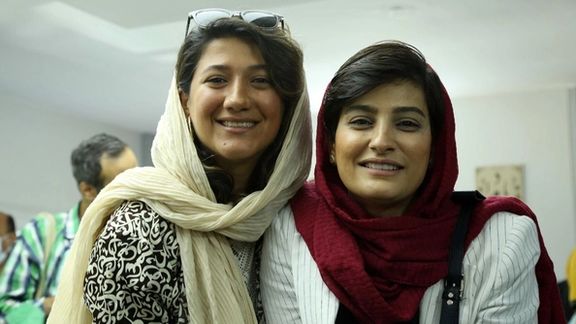
The US National Press Club has honored two jailed Iranian journalists who first reported the death in custody of Mahsa Amini in September 2022, which led to their arrest.
The National Press Club, the world’s leading professional organization for journalists with a 115-year history, named Niloofar Hamedi and Elaheh Mohammadi as the 2023 international honorees for the Club’s highest honor for press freedom, the John Aubuchon Award.
Iran International’s Bozorgmehr Sharafedin – previously with Reuters – was also among the winners of the prestigious National Press Club Journalism Awards, winning Edwin M. Hood Award for Diplomatic Correspondence for co-authoring investigative report “America’s Throwaway Spies: How the CIA failed Iranian informants in its secret war with Tehran.” He wrote the Reuters Special Report with Joel Schectman in 2022.
“This has been a year of momentous struggle for press freedom in Iran. According to studies, as many as 90 journalists were arrested during the protests that followed the murder of Mahsa Amini by the Iranian morality police. Our honorees: Niloofar and Elaheh, created some of the journalism that told Mahsa’s story and captured the hearts of protestors and especially Iranian women,” read a Friday statement by the club.
The two journalists – from reformist Iranian dailies Shargh and Ham-Mihan – have been imprisoned for about 300 days because the regime blames them for the nationwide protests that followed the death of the 22-year-old woman.
Since her tragic death, Amini has become the icon of Women, Life, Liberty movement, the boldest uprising the regime has faced since its establishment.

Hamedi, managed to visit Mahsa Amini in Tehran’s Kasra hospital and broke the news of her grave condition after being taken into the custody of the 'morality' police three days earlier for wearing her hijab “improperly”. Amini was in a coma with severe head wounds at the time and Hamedi’s photo of Mahsa’s parents hugging and crying went viral. She was arrested just days later. Mohammadi, likewise, managed to travel to Amini’s hometown of Saqqez in western Iran to report on her funeral on September 17, which thousands attended. She was arrested for her coverage of Mahsa’s funeral and the unrest around it.
The Islamic Republic is known to crack down on people who reveal corruption and wrongdoing in Iran, with authorities announcing that reporting the crimes is worse than the crimes themselves.
The two journalists, whose second court hearing was held this week, have been charged with propaganda against the regime and conspiracy to commit acts against national security, which could bear death sentences. The duo have become symbols of free journalism and resistance against the regime’s oppressive rule, with a large number of people calling for freedom in their posts.
The National Press Club added in the statement, “In the current climate the global journalism community has worked hard to raise awareness of Niloofar and Elaheh. They have been named to Time magazine’s Time 100 Most Influential People of 2023, among other recognition,” highlighting that “This Aubuchon award is being announced at this time to help draw attention to these two brave women and to protest their brutal treatment.” “We adamantly call for their safety and release.”
The outlet affiliated to the ultraconservative Paydari Front wrote that “reliable information” suggests the two “participated in training courses of institutions that seek the overthrow [of the Islamic Republic] and had connections with foreign intelligence services,”
Iran's intelligence ministry and SAS, the intelligence organization of the Revolutionary Guards (IRGC) even accused Mohammadi and Hamedi of being CIA agents. “Using the cover of a journalist, she was one of the first people who arrived at the hospital and provoked the relatives of the deceased and published targeted news,” they said in a joint statement.
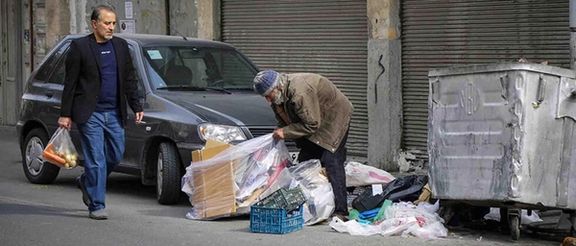
Iranian lawmaker Gholamreza Nouri Ghezeljeh has warned that Iran’s economic situation is alarming, and the people have been struggling in recent years to survive.
Ghezeljeh told reporters in Tehran that the economic crisis is the outcome of inaction by parliament over the country’s development plans. This comes while some experts say funds allocated to development plans are often spent on propaganda or military projects.
The lawmaker also attributed part of the problem to the fact that Iranian officials including presidents lack long-term vision. For the same reason, he said, only 30 percent of six development plans since the establishment of the Islamic Republic have been implemented.
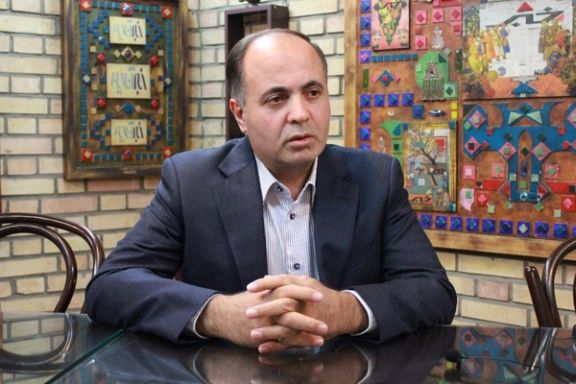
Meanwhile, another Iranian lawmaker, Alireza Mobaleghi, said in an unprecedented statement on Thursday that officials, including members of parliament, are ashamed and embarrassed for the difficult economic situation and have no convincing answers to the people’s grievances.
He added that the embarrassment is more serious for those like him who represent the people in the underprivileged parts of the country like his constituency in Kouhdasht in southwest Iran.
Iran’s struggling economy has faced a worsening crisis since 2018 when the United States withdrew from the JCPOA nuclear accord and imposed sanctions. Annual inflation is above 50 percent and ordinary salaries are less than half of what families need for basic necessities.
But no politician within the regime dares to criticize Supreme Leader Ali Khamenei who is the top decision maker in matters of security and foreign policy and ultimately responsible for policies that have isolated the country.
The lawmaker further charged that some government managers and decision makers are not efficient enough for their jobs and that is what causes part of the problem. There are individuals who might be good speakers and know a lot of theories, but they cannot do their job necessarily.
“There is no justification for using such individuals in the government although some of them might have good academic credentials,” he said. He added that Iran is involved in a full-fledged economic war, and it needs highly capable officials.
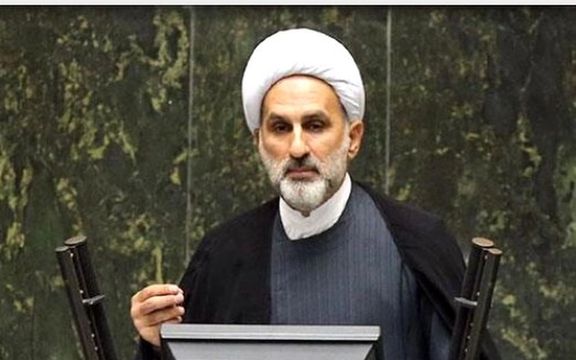
Mobaleghi maintained that some members of parliament have presented serious demands to the government to change its senior and mid-ranking managers in a bid to improve the country’s situation. He further warned that the parliament might consider impeaching some of Iran’s cabinet ministers.
Despite the problems, some hardliner lawmakers such as Fereidoun Abbasi do not seem to take the issue seriously. Abbasi said on Thursday, “Iranians are potentially rich, but if their wealth does not positively impact the country’s economy, that is not the government’s fault. It is something to do with the ongoing economic war.”
Economic war is Iranian officials’ jargon for US sanctions against the Islamic Republic government.
In fact, nepotism, corruption and political considerations play a vital role in the economy, which is mostly controlled by the government. Conditions for private investments are not encouraging and many have taken their capital abroad. Official statements show that tens of billions of dollars have been taken out in the past decade.
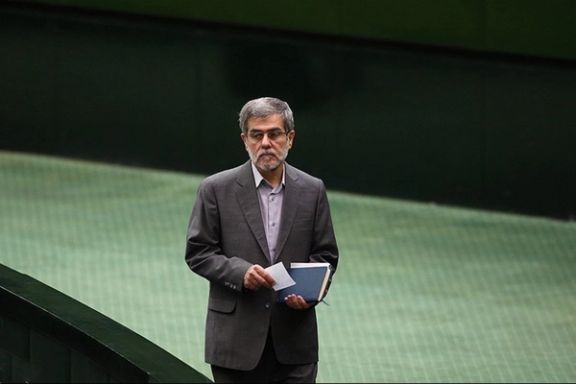
Abbasi charged that “the lawmakers who speak about economic shortcomings in their constituencies and state that the people are poor and underprivileged are simply trying to justify their inaction.
The hardliner politician added, “Instead of highlighting the country’s problems, lawmakers should strive to solve them,” shifting the blame from systemic problems to members of parliament.
Meanwhile, in an interview with Khabar Online website, Labor market Expert Hamid Haj Esmaili criticized government officials for providing false statistics to the media to pretend that they have tackled problems such as unemployment and inflation. He said there are serious conflicts between the figures presented by state officials and statistics worked out by specialised agencies.